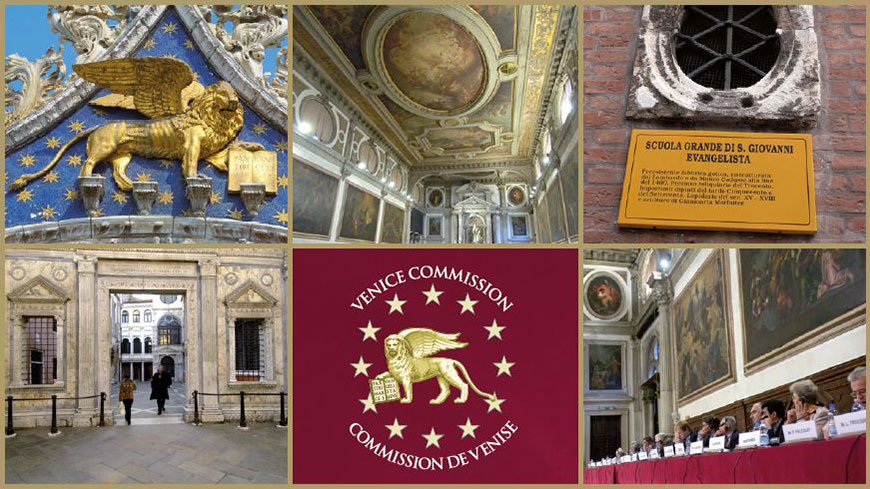In the context of the war, the ban on the display of certain symbols used by the Russian armed forces during its invasion of Ukraine adopted by the Moldovan Parliament in April 2022 respects the requirements of legality, legitimacy and proportionality, according to an opinion adopted by the Council of Europe’s Venice Commission legal and constitutional experts during its 21-22 October plenary meeting.
The opinion focuses on the ban on the use of certain symbols introduced by Law No. 102 on Amendments to Some Normative Acts, which reforms the Law on the Countering of Extremist Activity and the Contravention Code, and on Law No. 143 on Amendments to the Audiovisual Media Services Code imposing certain restrictions on the media.
During its meeting, the Venice Commission also adopted an amicus curiae brief on certain provisions of Law No. 102 for the Constitutional Court of the Republic of Moldova related to the clarity of provisions on combatting extremist activities; and a joint opinion with the Directorate of Human Rights and the Rule of Law of the Council of Europe on the draft law on the Supreme Court of Justice (SCJ).
The joint opinion, requested by the Moldovan Minister of Justice, examines provisions related to the SCJ´s role in uniformising the application of the law, the reform of the composition of the SCJ to include legal professionals other than career judges, the reduction in the number of SCJ judges from 33 to 20, as well as the evaluation of judges, by vetting sitting judges and pre-vetting candidates.
The Commission also adopted, together with the OSCE Office for Democratic Institutions and Human Rights (OSCE/ODHIR), a joint opinion on the draft electoral code and a joint amicus curiae brief on the offence of illicit enrichment.
The opinions and curia amicae briefs were prepared under the Quick Response Mechanism (QRM) in the framework of the European Union/Council of Europe joint programme Partnership for Good Governance, funded by the European Union and the Council of Europe and implemented by the Council of Europe.
Full press release: Republic of Moldova: banning the display of symbols used by Russia’s army in Ukraine is legitimate and proportional, says Venice Commission (PDF)
- More information: Venice Commission and the Republic of Moldova





